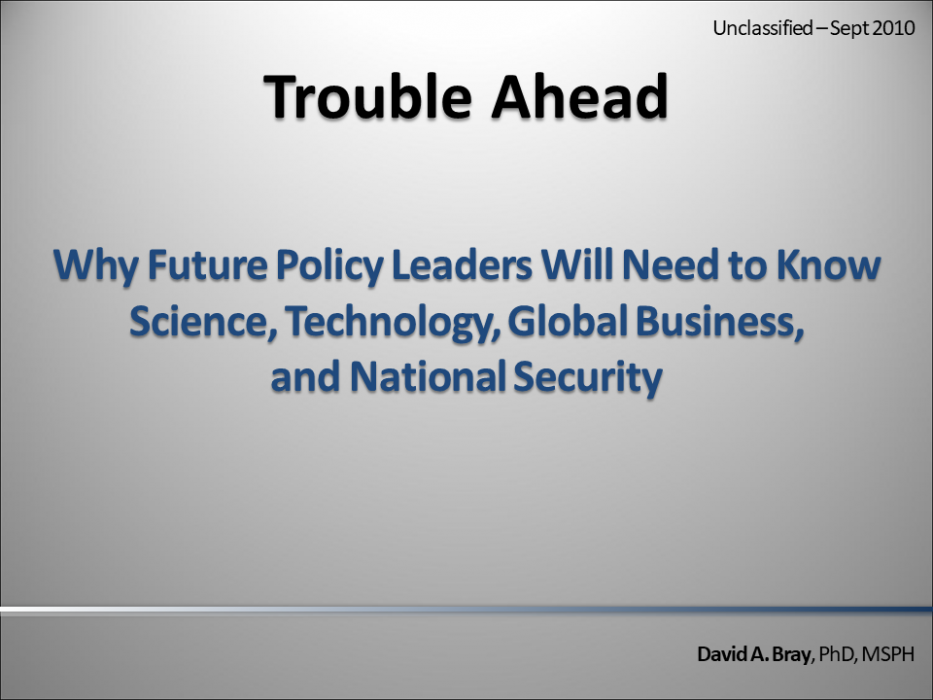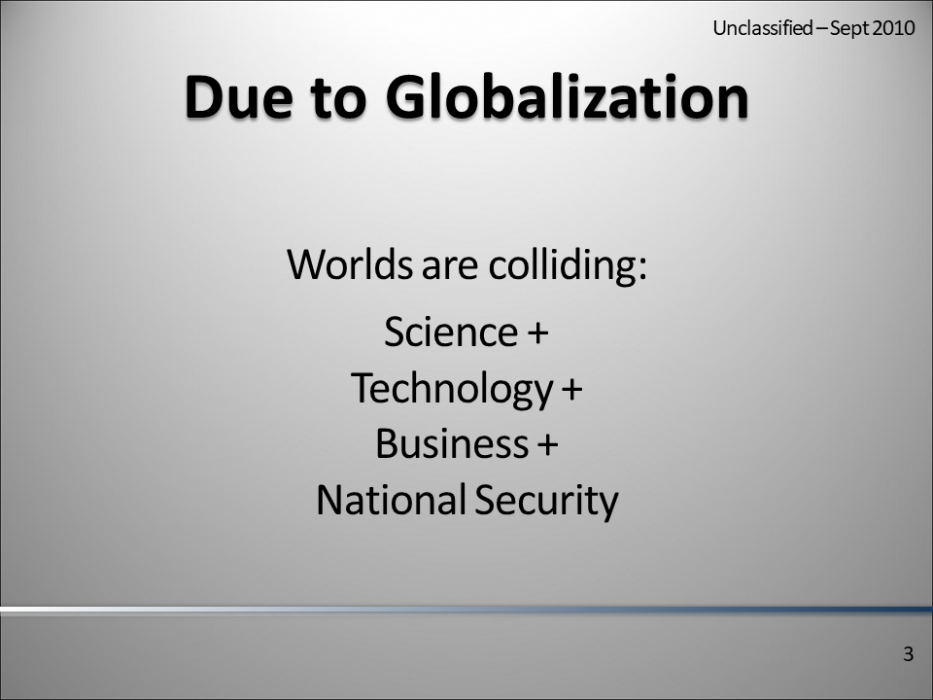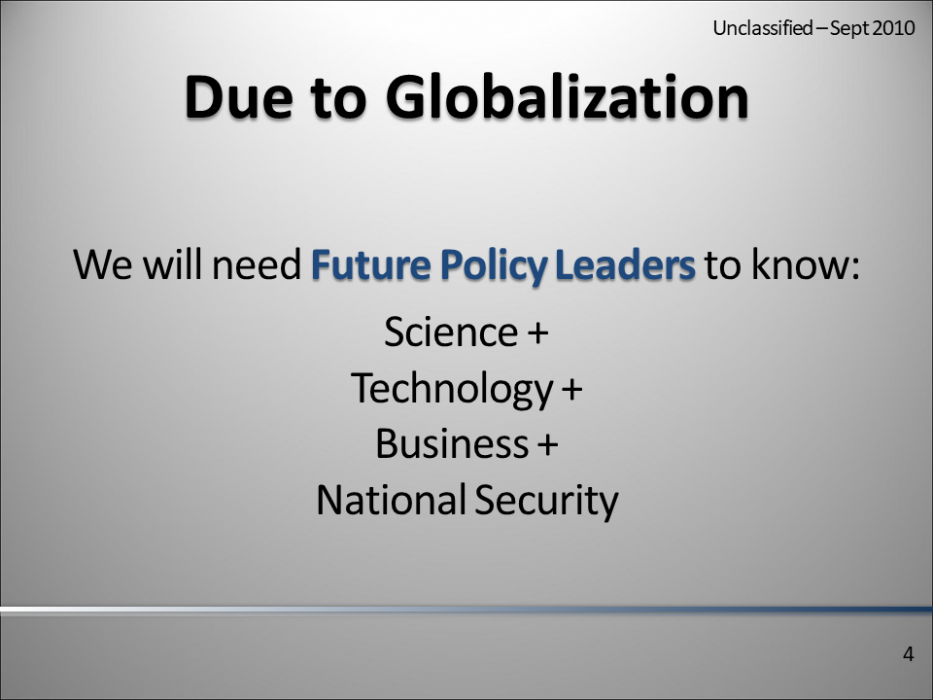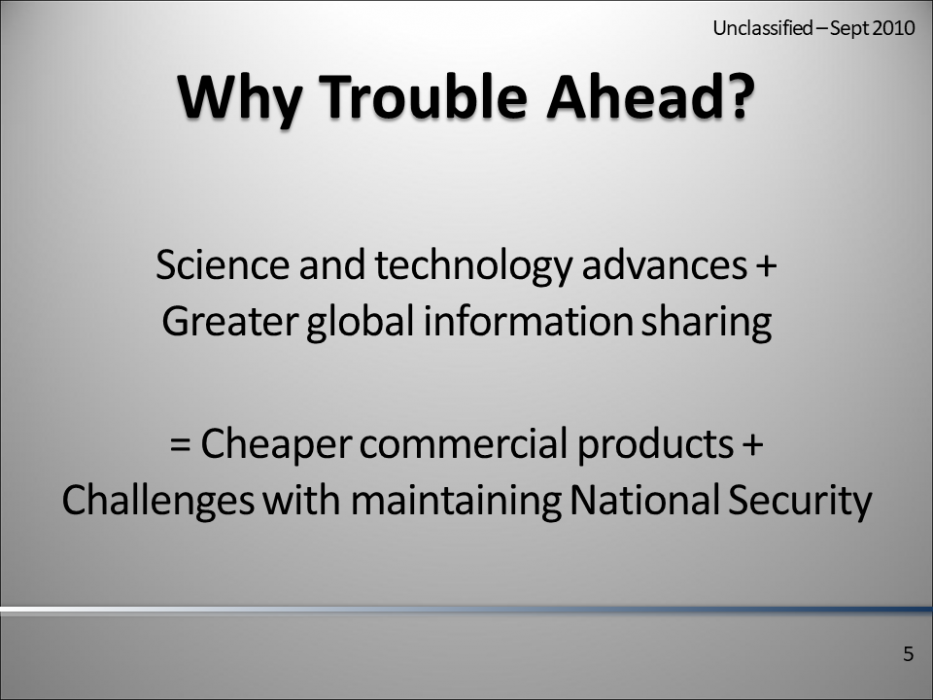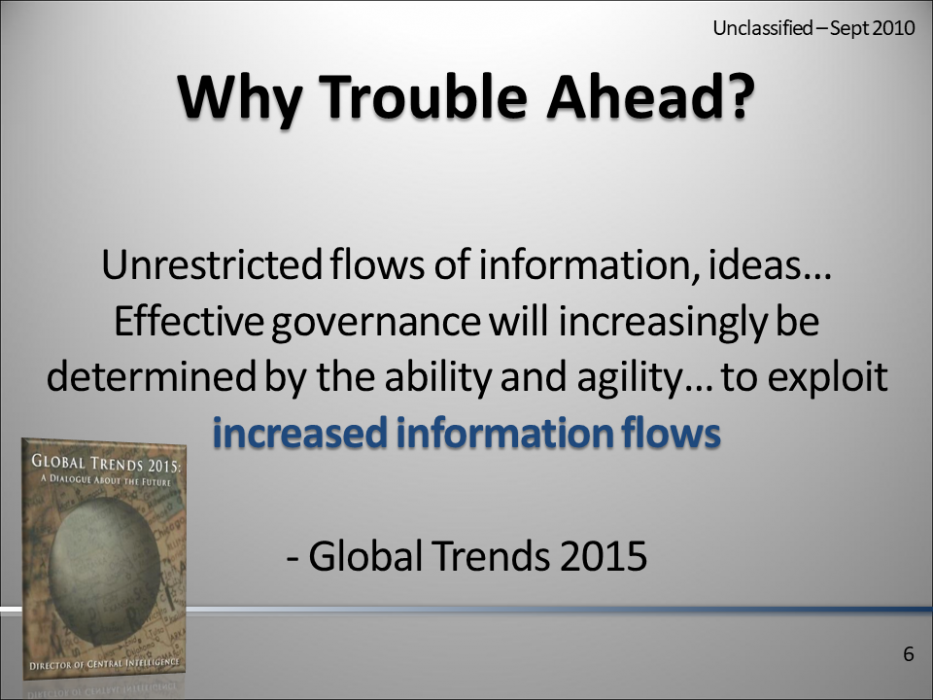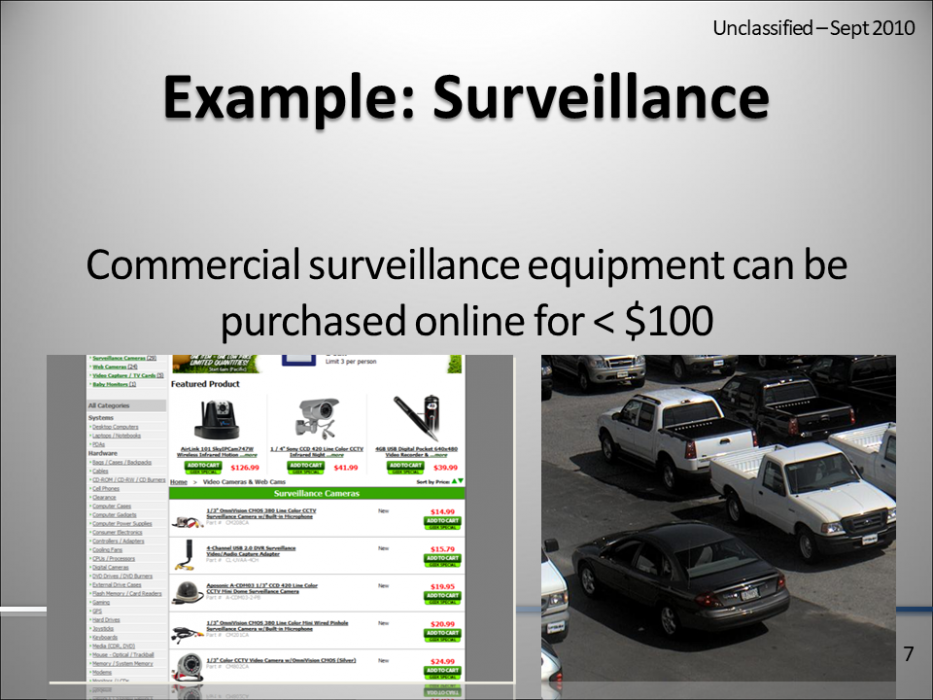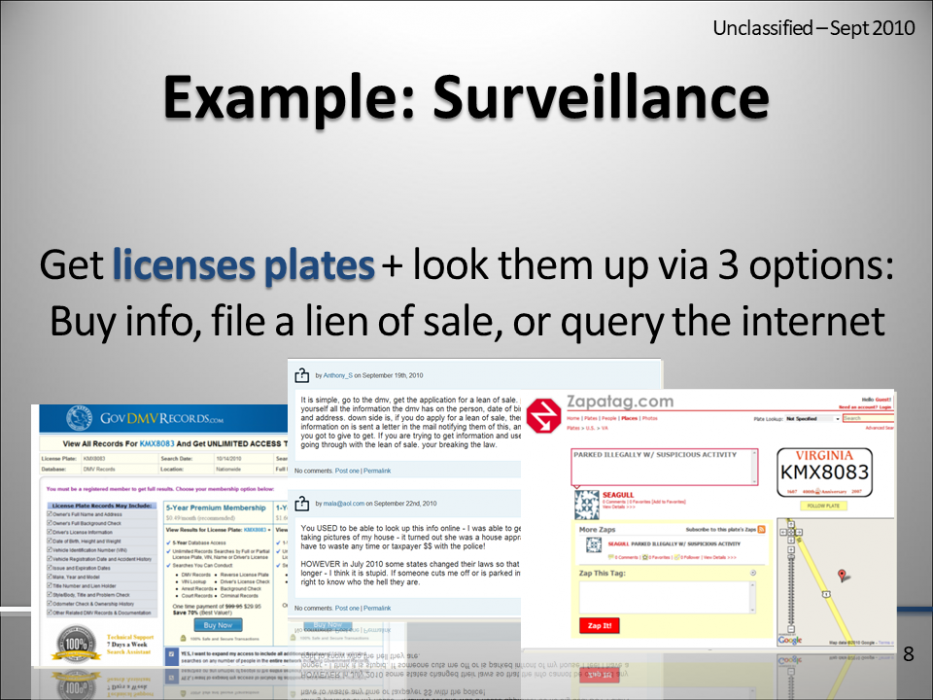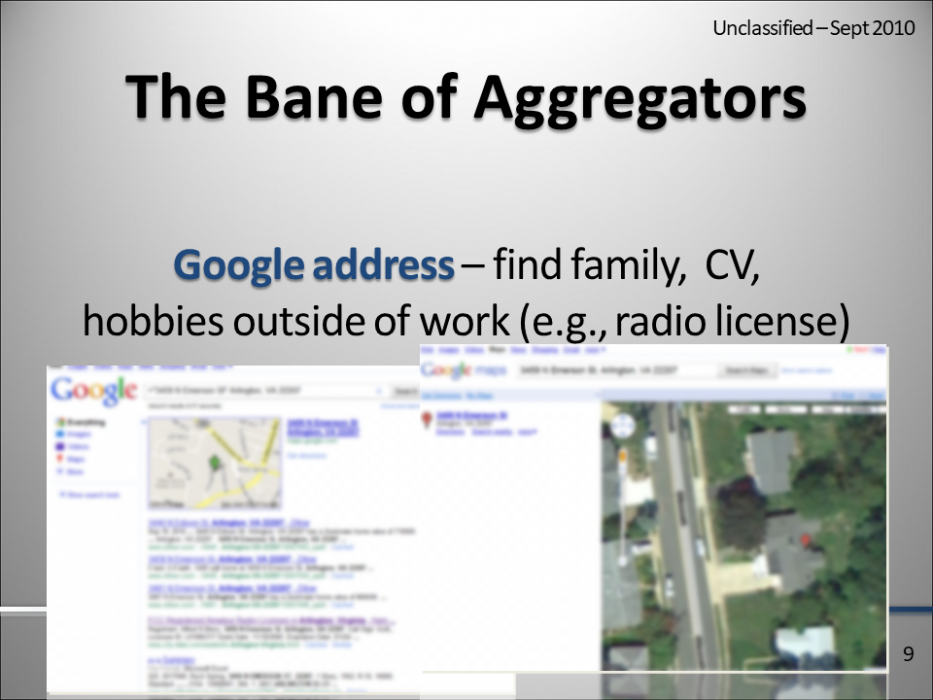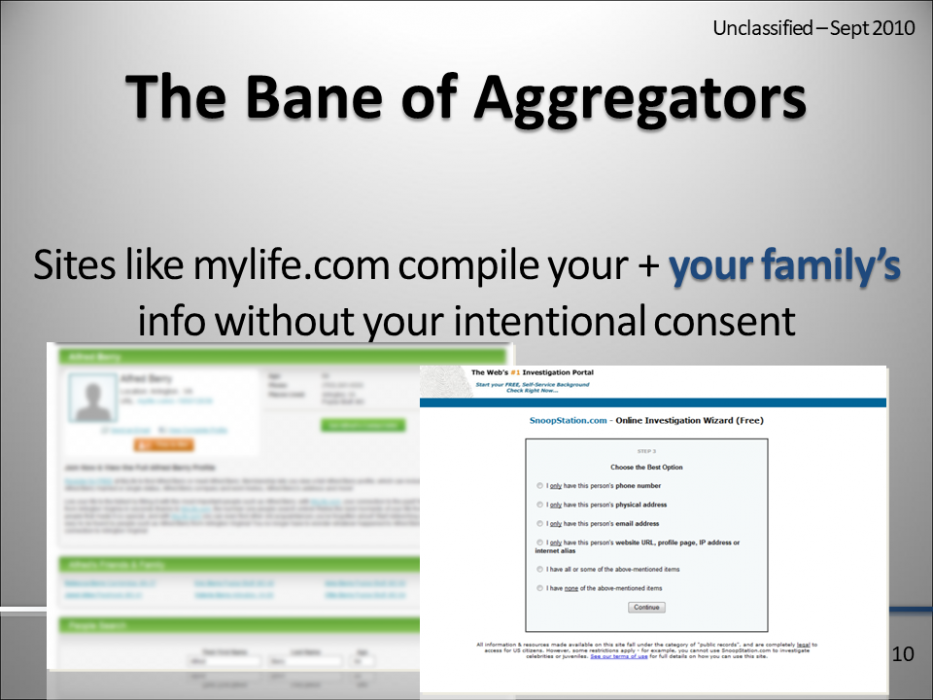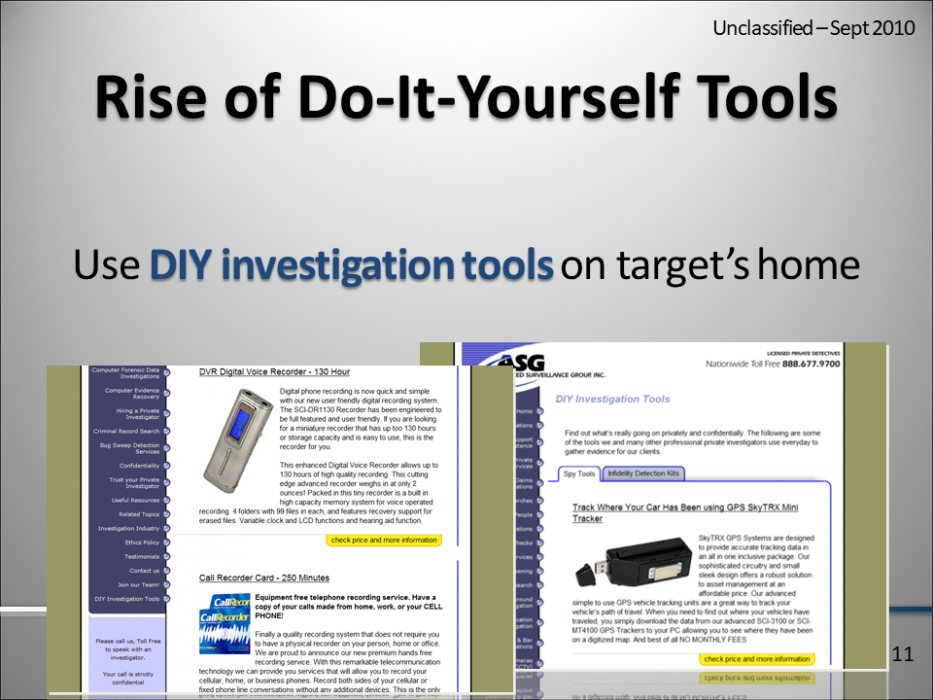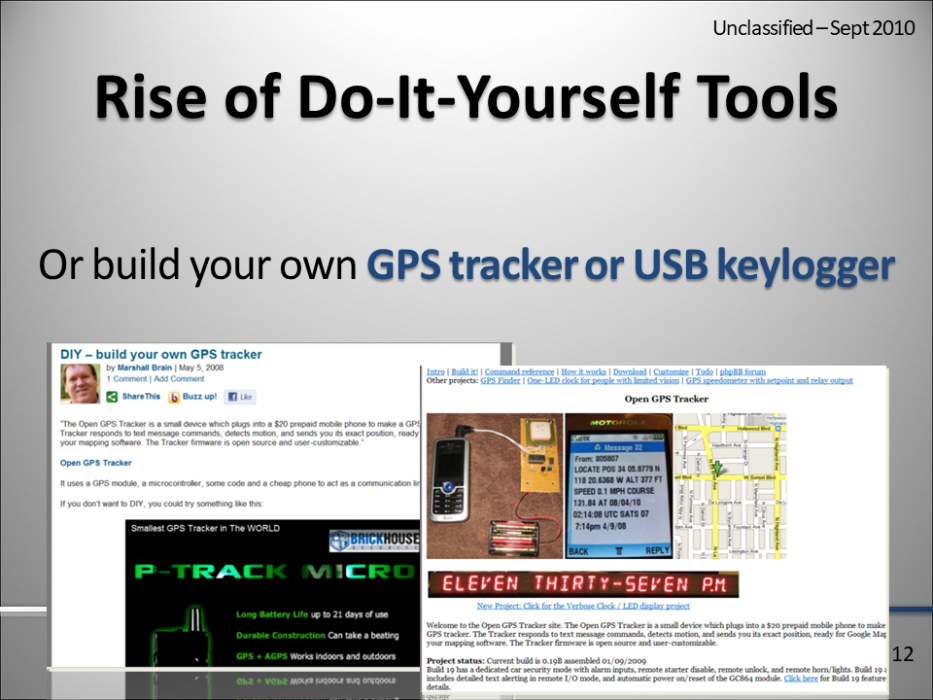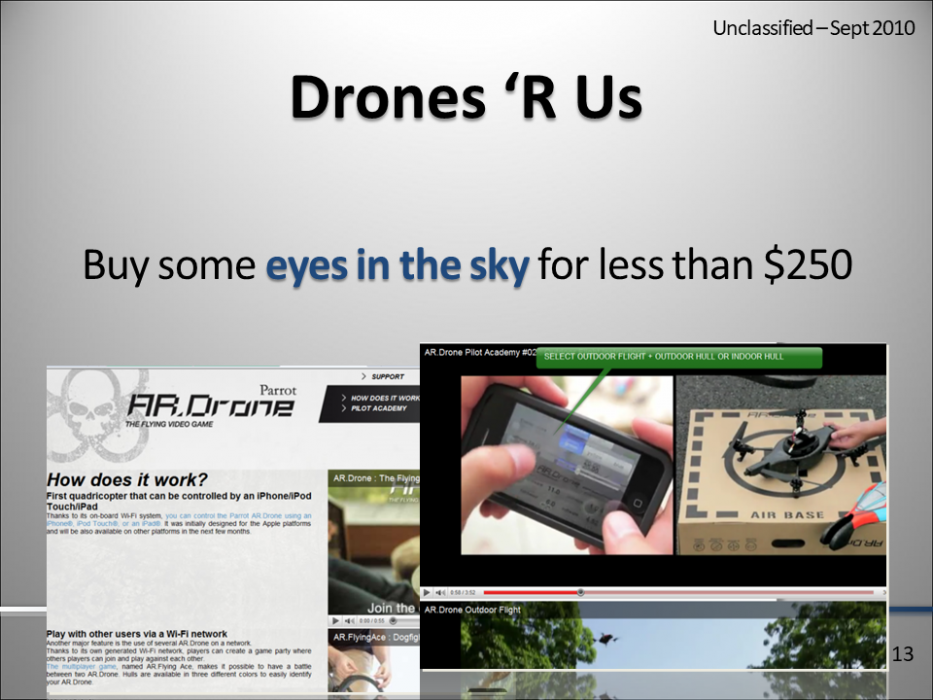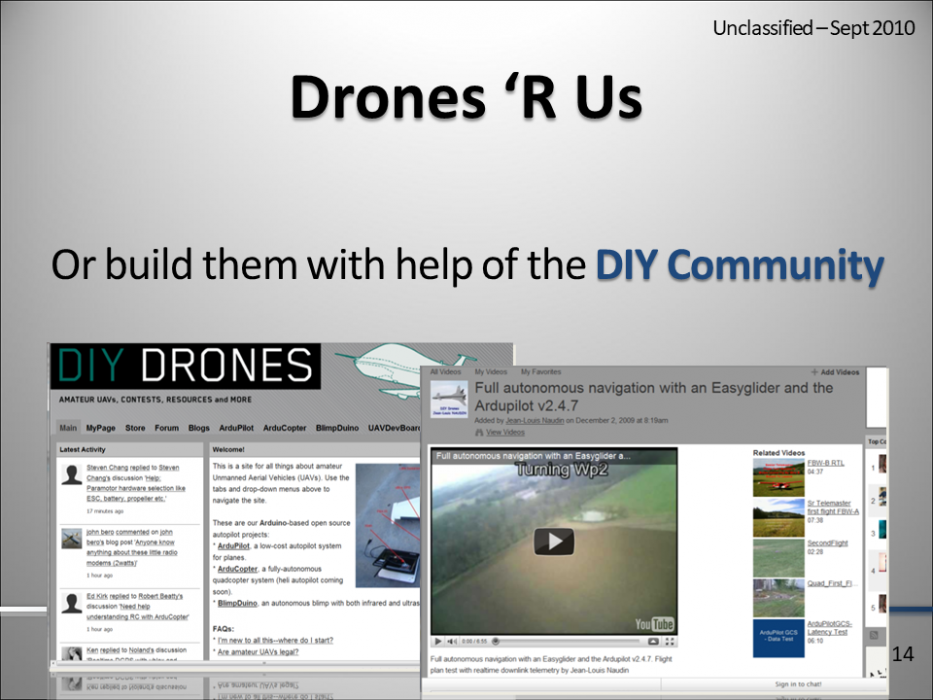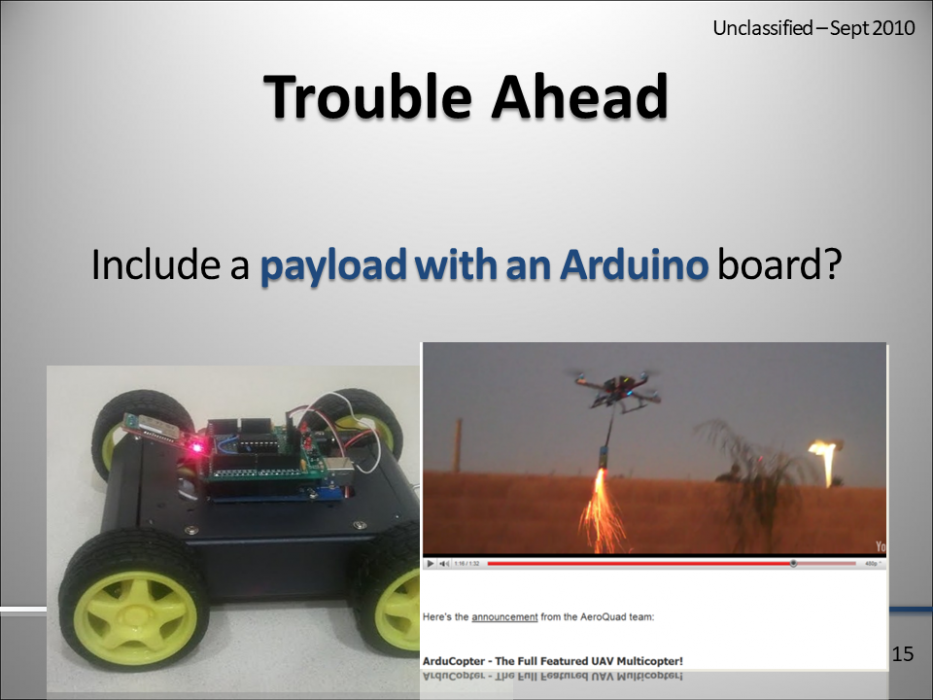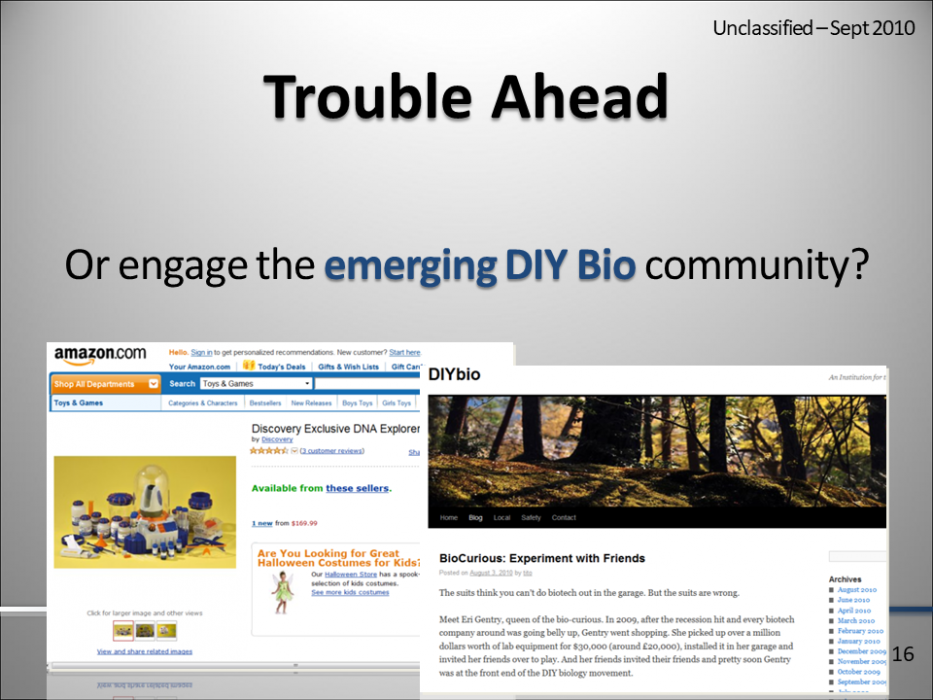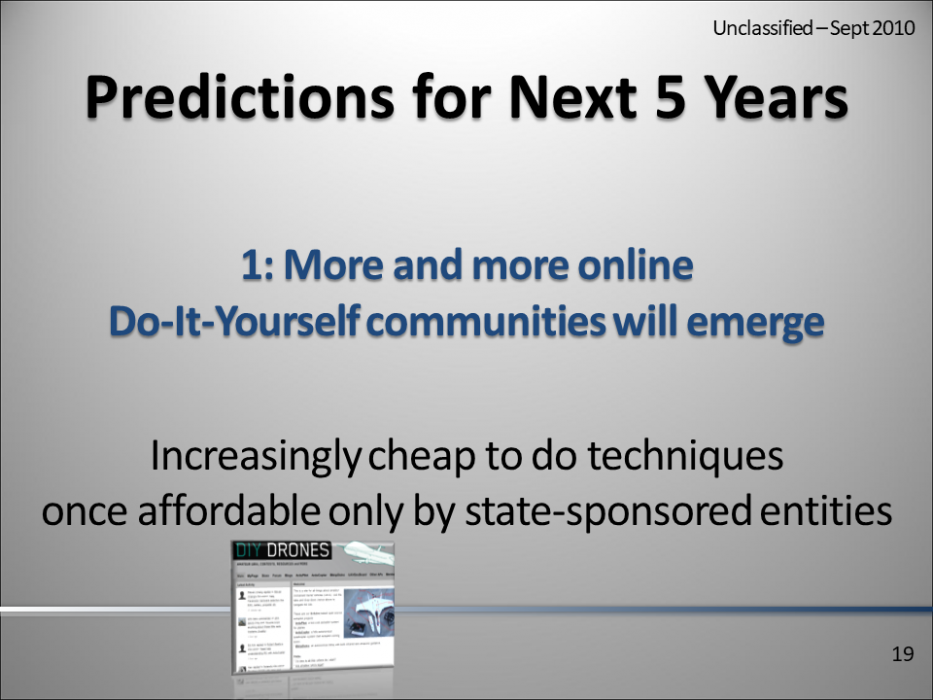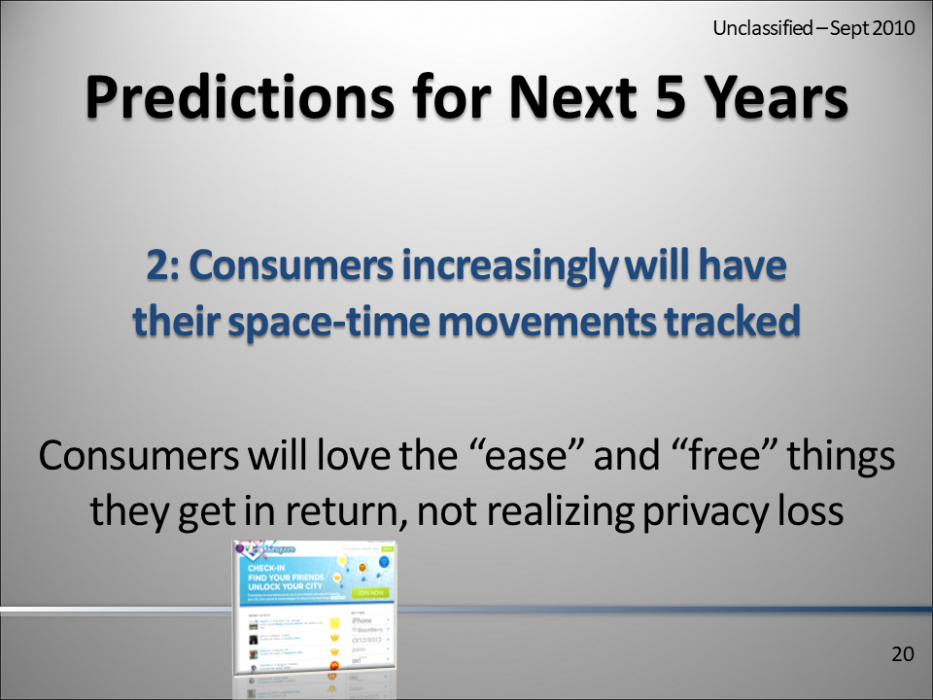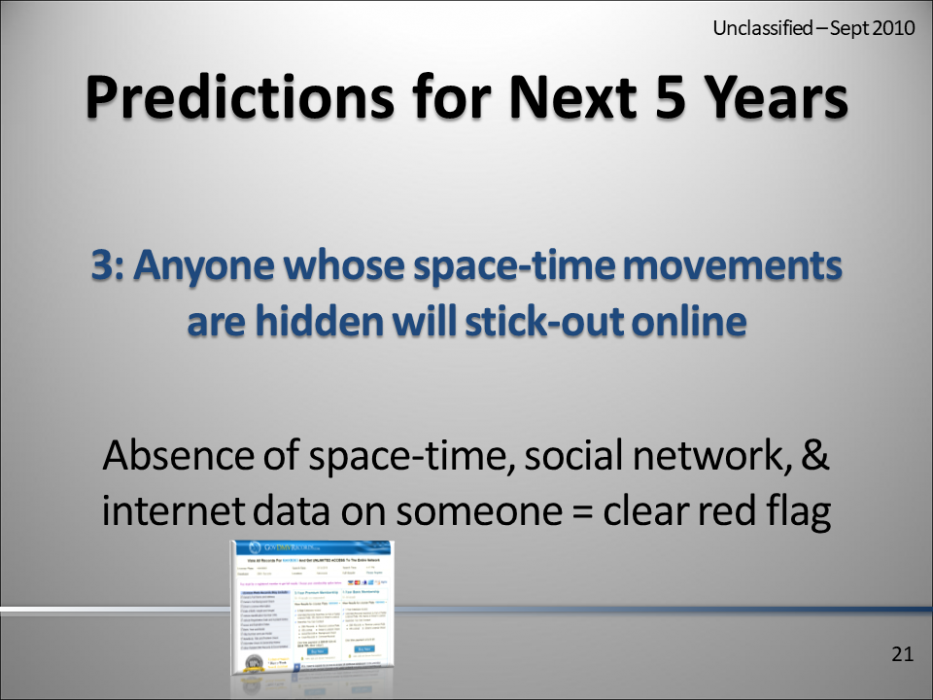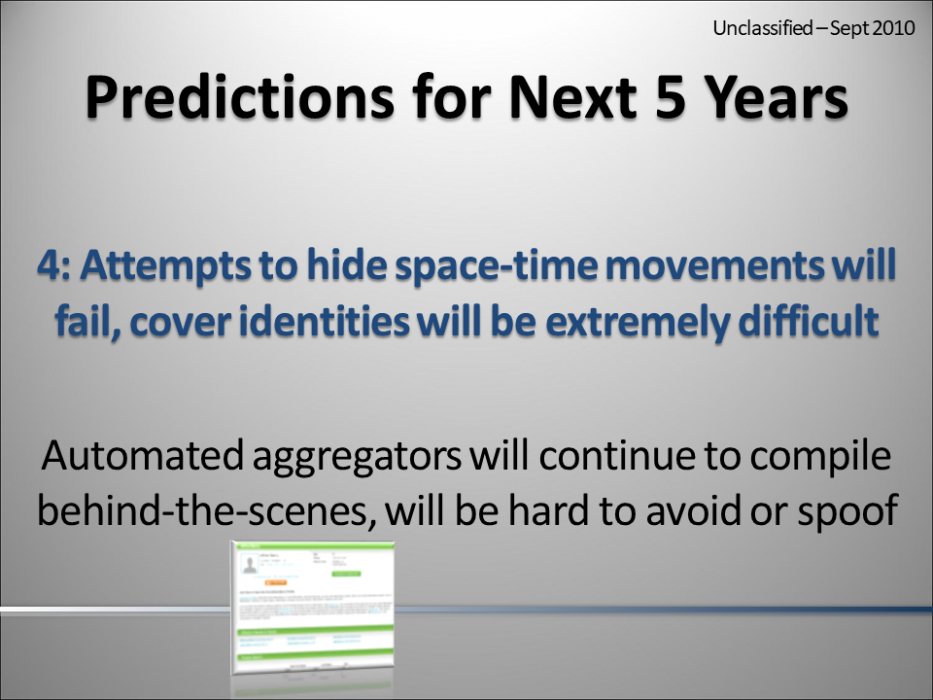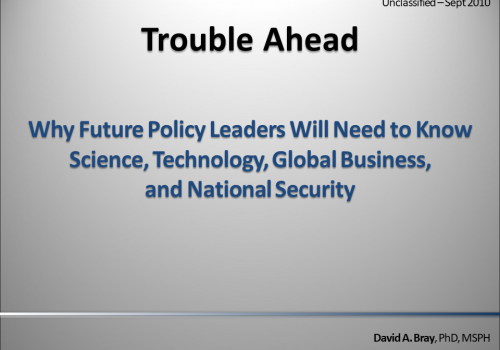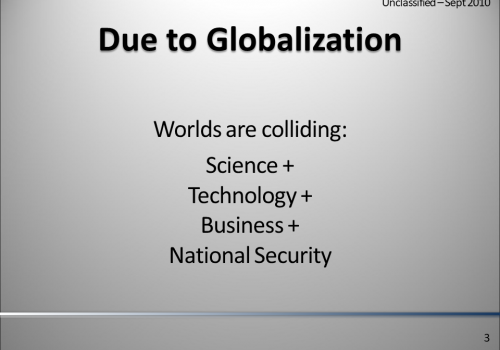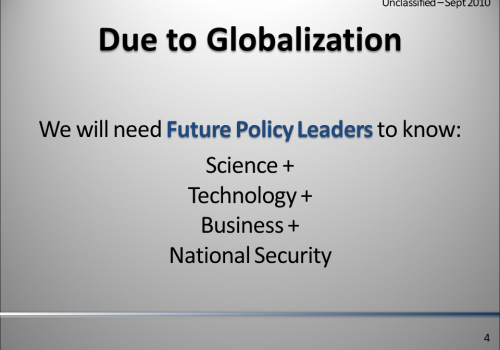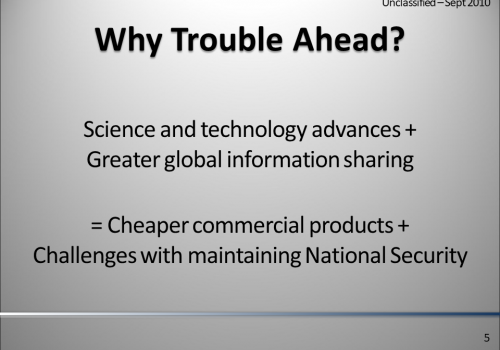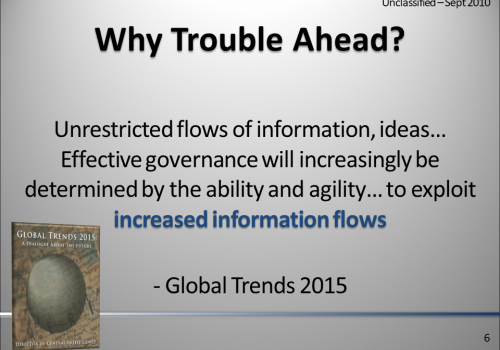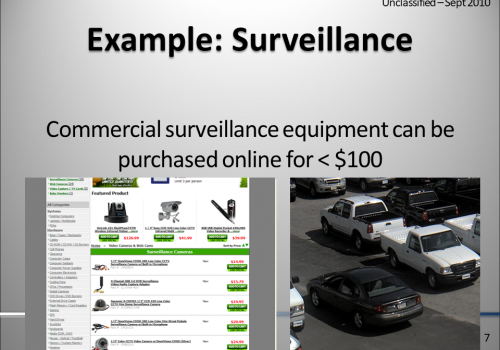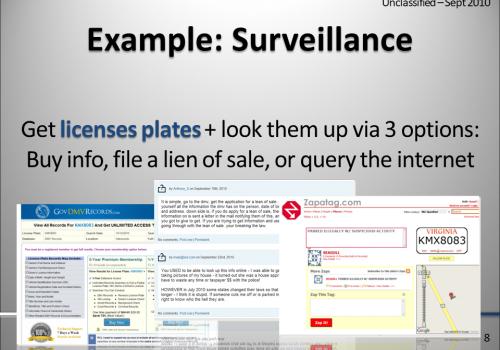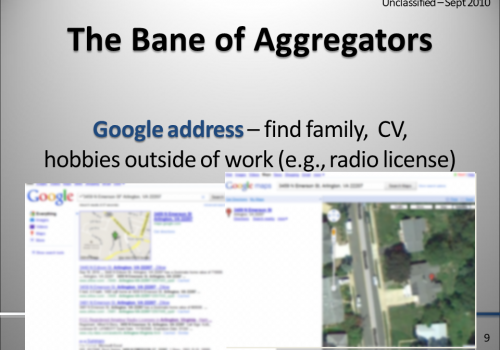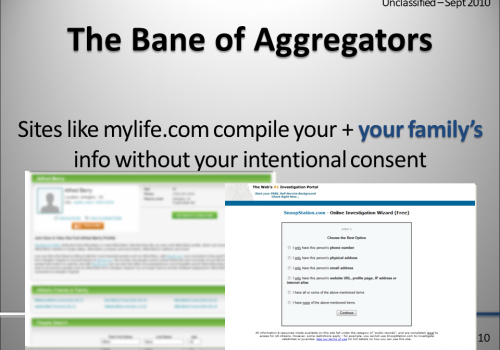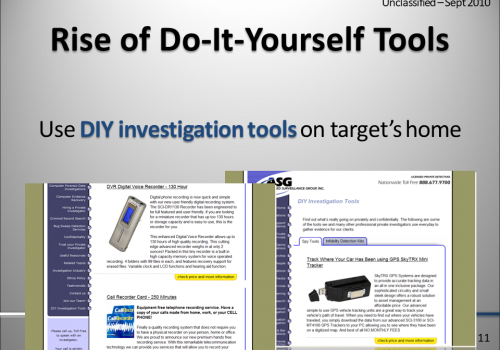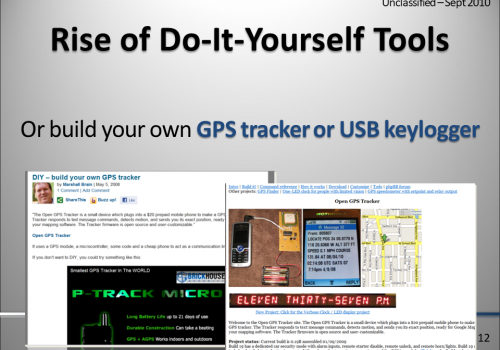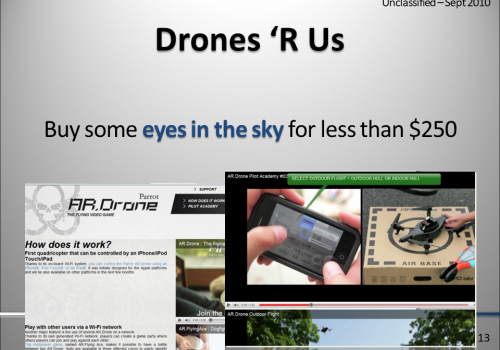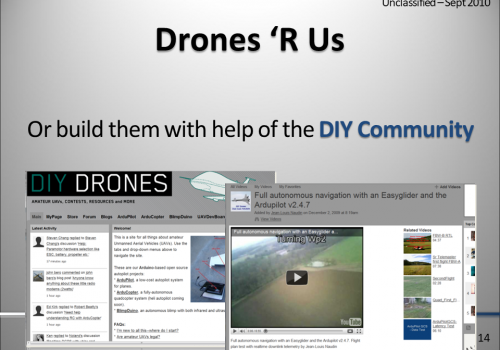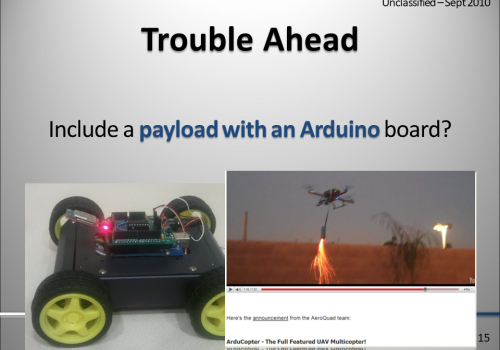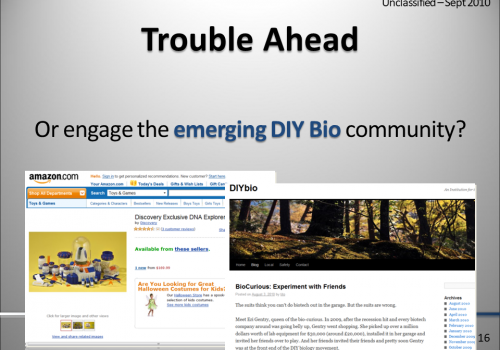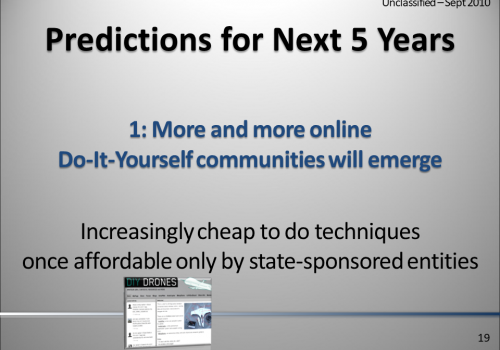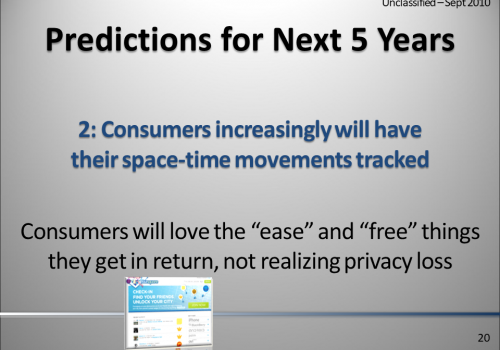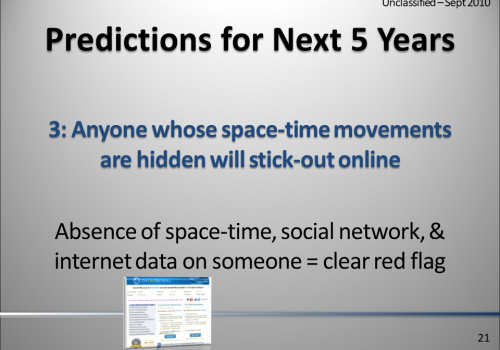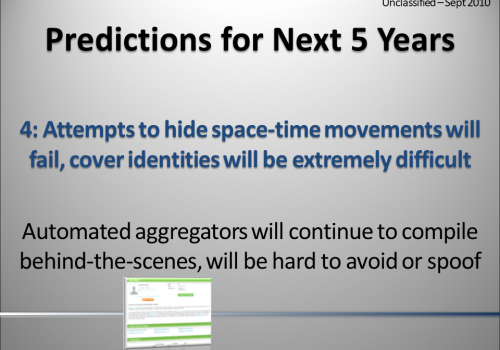August 19, 2020
Potential trouble ahead: predictions from 2010 now are real in 2020
In 2010, the Dr. David Bray provided an unclassified briefing to the U.S. national security and defense communities on “Why Future Policy Leaders Will Need to Know Science, Technology, Global Business, and National Security”. Now, 10 years later, it is worth revisiting those slides – especially in light that those slides raised concerns about the use of small commercial drones and do-it-yourself drones back then and recently we have seen elevated concerns about what these could do to commercial airplanes in flight.
Below are images from the original 2010 “Trouble Ahead” set of predictions.
The concerns raised in 2010 opened with:
Worlds are colliding: Science + Technology + Business + National Security
Looking at the last decade, as well as current projected trends, these world continue to collide. The reason why the GeoTech Center exists is to explore how to ensure that data and tech efforts benefit people, prosperity, and peace and ideally do not harm.
The concerns and predictions continue with:
Science and technology advances + Greater global information sharing
= Cheaper commercial products + Challenges with maintaining national security
Which also proves to have been true for the last decade and what seems to be continued projected trends as well. The good news is data and technologies are becoming democratized and widespread. Yet this is also bad news because now such capabilities can be used for purposes that are less than benevolent in the world. This underscores even more the mission of the GeoTech Center to encourage what we call: #GoodTechChoices
The slides and predictions from 2010 continue with predictions for the next five years, to include:
Consumers increasingly will have their space-time movements tracked, and consumers will love the “ease” of the accessing the “free” things they get in return, not realizing privacy loss
Which also appears to have matched what happened, as well as recognizing that about the middle of the last decade there was a bit of a “techlash” where some become concerned about privacy loss and did not want to become a surveillance state. The question for 2020, especially given the current COVID-19 reality where so many people are working online, is whether people who are working remotely recognize the potential privacy concerns of such work? Do remote works prefer ease and free at the loss of agency over personal data?
At the GeoTech Center, we firmly believe that the United States and other open societies face data coordination challenges. This is why Data Trusts (also known as Data Cooperatives) need to be pursued. Without these we won’t find a way to involve people in data – to “do data with people” instead of to people. We must find a way for great public participation with the choices associated with data at community and larger population scales.
